Review for Revenge
Introduction
There are samurai movies aplenty in the canon, and revenge is a staple motivation in storytelling. It’s fair to say that most samurai movies will have some element of vengeance in them, even if it is just a subplot. That goes without saying really, given that most of your characters are wielding bloody great swords. Then again, this is apparently the only jidaigeki film that renowned director Tadashi Imai made. This isn’t your normal samurai revenge movie.
A passing comment about weapon maintenance spirals out of control, when low ranked samurai Shinpachi takes offence to his superior Magodayu’s criticism. In Shogunate era Japan, duels are illegal, but that doesn’t stop them from settling the matter in terminal fashion, leaving Magodayu dead. The government lays the issue to rest by declaring both participants insane, and exiling Shinpachi to a temple. But that doesn’t stop Magodayu’s clan’s thirst for vengeance intensifying.
The Disc
Revenge is presented on this disc with a 2.35:1 widescreen 1080p monochrome transfer taken from a 2k restoration, with PCM 2.0 Mono Japanese audio and optional English subtitles. There is no sign of age in this 1964 film, damage and dirt is absent, and the image looks immaculate, clear and sharp with excellent contrast, deep blacks when required yet with no loss of detail. The audio too is fine, centralised naturally, but warm and effective, with solid fidelity. The dialogue is clear, and the subtitles are timed accurately with no typos.
Extras
The disc boots to a static menu screen that has your audio options, and the extras listed below that...
Tony Rayns On Revenge (22:05)
The Enemy Within: Power and Politics in the Films of Tadashi Imai (15:57)
The first run release of the film will come with o-card packaging, and a 20-page booklet with writing on the film from Tom Mes.
Conclusion
There’s a spectrum when it comes to jidaigeki and chanbara films, from pure action entertainment to vicious political polemic. Revenge is about as political as you can get without running for office. It’s an unvarnished look at binary societies, strictly governed, rule based, where life is an either/or proposition. The Edo era insular society in Japan was so strictly regimented and controlled, so that the Shogun could maintain power, that life effectively became worthless for much of the populace, not least the warrior class Samurai, supposedly at the top of the caste system, but warriors without wars to fight, whose martial instincts were turned inwards to stop them even thinking of rebelling.
That actually makes Revenge a very relevant film, although you might not see it at first glance. We too live in a binary society, one created by the advent of social media, with debate and opinion simplified by the Twitter character limit, choices limited to Facebook polls, and our populist politicians telling us to either be with them, or against them. When public figures have their entire lives ‘cancelled’ for saying or doing one ‘wrong thing’, you could say that we now have our own version of a bloodless Bushido. Revenge – Adauchi is a stark mirror indeed, just don’t let the katana and the chonmage hairstyles convince you otherwise.
Shinpachi takes umbrage when his superior, Magodayu complains at the lack of polish on his spear head. He spends his days on duties, while the elite samurai Magodayu no doubt has minions to keep his weapons and armour gleaming. Speaking up is verboten though, and the ensuing argument, petty though it is, spirals out of control until one of them is lying dead on a riverbank following an illegal duel.
What follows are the pre-determined consequences of a society so strictly governed that free will is practically non-existent. The authorities, faced with the aftermath of a swordfight have to balance the warrior code that controls the samurai, with their own laws banning duels. Their initial solution is to declare the combatants insane, and to exile the survivor Shinpachi.
That might be enough for the head of the wronged clan, but not for the victim’s older brother, who wants revenge, and for his father to apply for an officially sanctioned duel. When that isn’t immediately forthcoming, he takes matters into his own hands. Shinpachi in exile comes under the influence of a priest, the one character who can look in from the outside, and reminding Shinpachi that he has a fiancé, suggests that he just leaves the warrior life behind. Shinpachi wavers on this, but once a samurai, always a samurai, and his path is set.
By the time the duel is sanctioned, it gets to the point where there is just the youngest son left of the wronged clan able to fight, too young and inexperienced to stand against Shinpachi. For the outcome demanded by the warrior’s code (a low-ranked nobody samurai, simply cannot best an established clan), they wind up throwing away all of their honour to uphold the code, an absurd and bloody contradiction, yet an act approved by the very authorities that are supposed to police the samurai.
Revenge is a powerful look at the hypocrisy of Shogun era Japan. You’d think that it was obvious and on the nose, but there is a universality to human nature that makes this film all too relevant, and applicable to our modern day way of life. That makes Revenge worth watching all the more, and Eureka Entertainment give it a stellar presentation on this disc.
You can buy Revenge – Adauchi direct from Eureka, also from Terracotta, and from mainstream retailers.
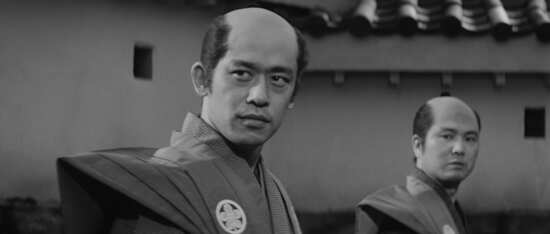
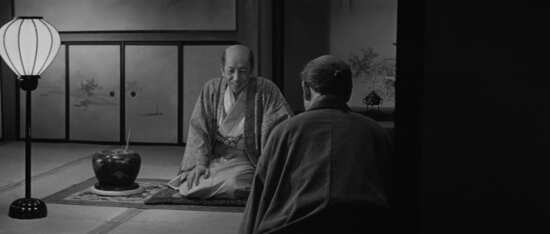
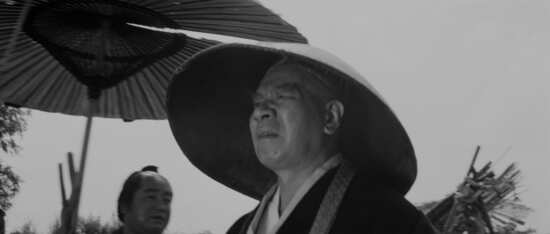
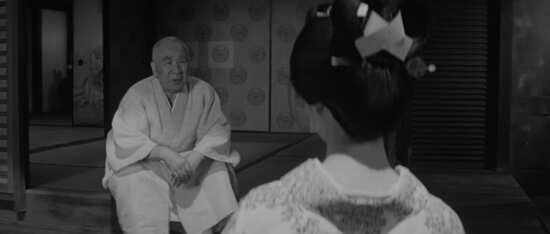
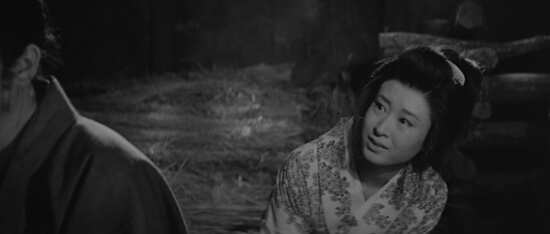
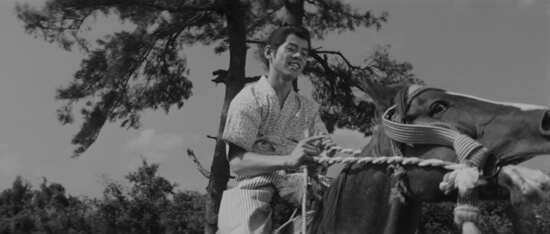
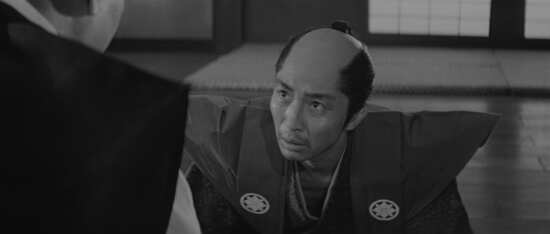
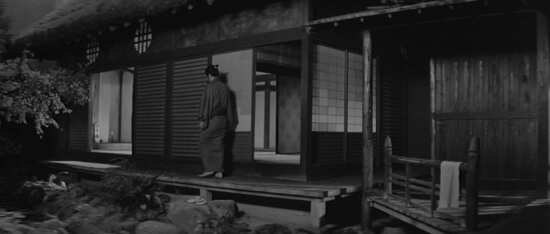
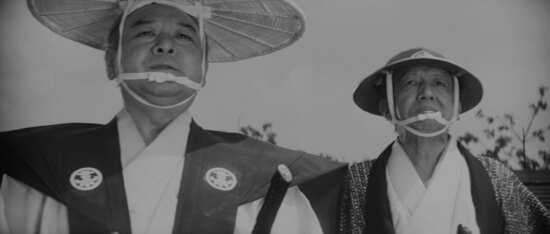
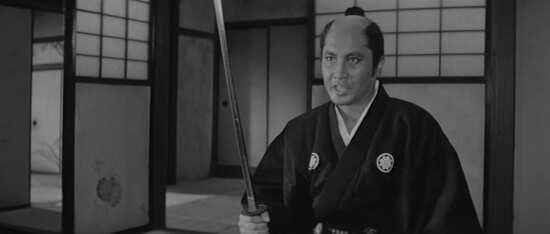
Your Opinions and Comments
Be the first to post a comment!